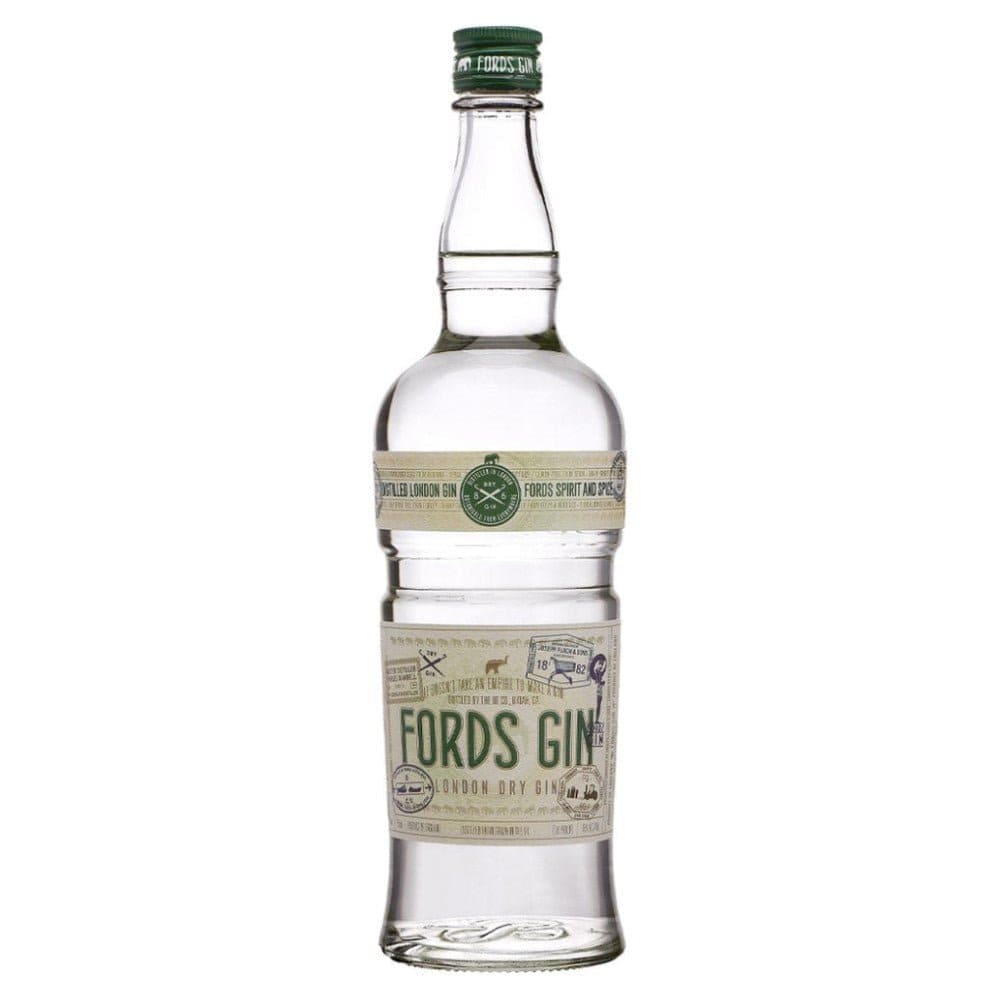
Fords Gin
Fords Gin is a collaboration between 8th generation Master Distiller Charles Maxwell of Thames Distillers and Simon Ford, dedicated to creating spirits designed in unison with professional bartenders and celebrated distillers from around the world.
A thoughtful mix of nine botanicals, Fords Gin starts with a traditional base of juniper & coriander seed balanced by citrus, florals and spices. Steeped for 15 hours before distillation, the botanicals deliver an aromatic, fresh and floral spirit with elegant notes of jasmine and grapefruit that creates a versatile base for any gin-inspired cocktail.
The go-to gin for the world's best bartenders and the best gin and tonics. A collaboration between gin expert Simon Ford and 10th generation Master Distiller Charles Maxwell.
Distilled in London at Thames Distillers.
A modern twist on a classic style of gin (London Dry), made for your favorite gin cocktails.Professor Cocktail's Gin & Tonic Taste Test - Best in Class, Perfect Score.

Explore a World of Spirits and Liquor through our Comprehensive FAQ Section.
Discover a World of Spirits and Liquor in our Helpful FAQ Section.
Types of Spirits
- Whiskey: Made from fermented grain mash and aged in wooden casks.
- Vodka: Typically distilled from grains or potatoes and known for its clear, neutral flavor.
- Rum: Produced from sugarcane byproducts like molasses or sugarcane juice.
- Tequila: Made from the blue agave plant, primarily in the area surrounding Tequila, Mexico.
- Gin: Distilled with botanicals, primarily juniper berries, giving it a distinctive flavor.
Production Process
- Fermentation: The process where yeast converts sugars into alcohol.
- Distillation: Separating alcohol from the fermented mixture to increase its concentration.
- Aging: Storing spirits in barrels to develop flavors over time.
Tasting and Pairing
- Tasting Notes: Learn to identify different aromas, flavors, and textures.
- Food Pairings: Discover which spirits complement various dishes, enhancing the dining experience.
Cocktails and Mixology
- Classic Cocktails: Recipes and techniques for making popular drinks like the Old Fashioned, Martini, and Mojito.
- Mixology Tips: How to balance flavors and create your own cocktail recipes.
History and Culture
Origins: The historical background of different spirits.
Cultural Significance: How spirits are enjoyed and celebrated around the world.
